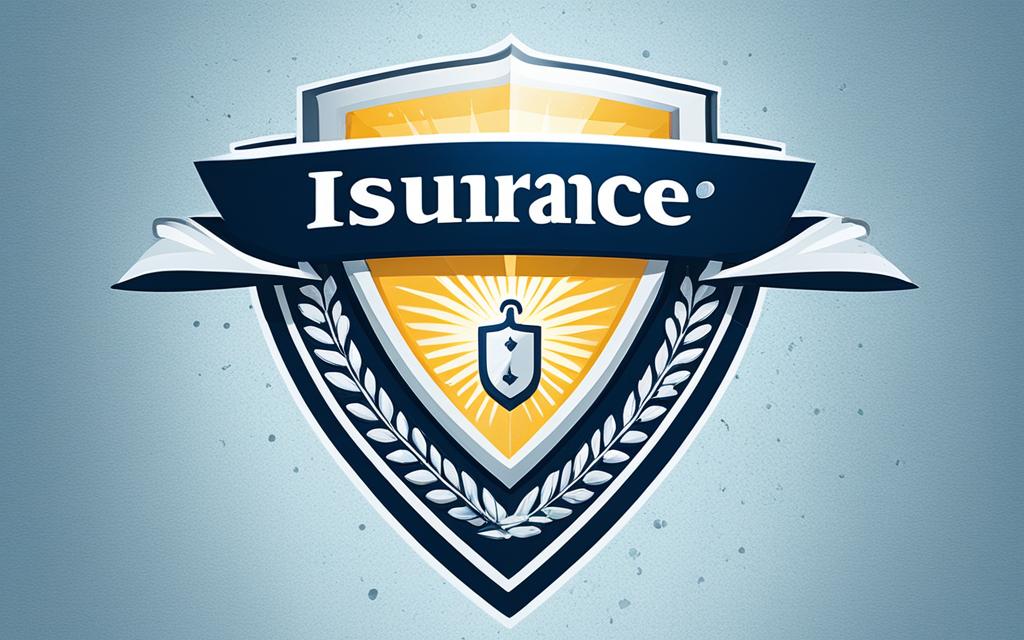As a small business owner, I’ve come to understand that success and risk go hand-in-hand. While I can’t control every variable that affects my business environment, I’ve learned that implementing safeguards to handle potential repercussions is crucial. Insurance has become a vital tool in my risk mitigation strategy, allowing me to protect my company from a wide range of operational risks.
Risk is inherently tied to uncertainty. It’s about facing situations or outcomes that I can’t completely control, where the results may be positive or negative. By identifying, assessing, evaluating, and monitoring potential risks, I can put systems in place to manage them or minimize their impact – a process known as risk mitigation. And insurance is one of the most powerful risk mitigation tools available to small business owners like myself.
Insurance can help me mitigate various types of risks, including liability, property damage, cyber threats, and business interruption. By transferring these risks to an insurance provider, I can safeguard my operations, protect my assets, and ensure the long-term sustainability of my business.
Key Takeaways
- Insurance is a critical tool for small businesses to mitigate operational risks, including liability, property damage, cyber threats, and business interruption.
- Risk mitigation involves identifying, assessing, and managing potential risks to minimize their impact on the business.
- Implementing a comprehensive risk management strategy that includes insurance can help ensure the long-term success and stability of a small business.
- Selecting the right insurance coverage and provider is essential for providing the necessary protection and financial security for small businesses.
- Cost-effective insurance solutions, such as bundled policies and discounts, can help small businesses balance coverage and affordability.
Understanding Operational Risks for Small Businesses
As a small business owner, it’s crucial to understand the various types of operational risks that can impact your company’s success. Operational risks are associated with deficient or ineffective systems, processes, and policies, and they often arise from routine business activities like handling equipment, managing employees, serving customers, and delivering products or services.
Types of Operational Risks
Small businesses face a range of operational risks, including strategic risks, compliance risks, and reputational risks. Strategic risks involve uncertainties surrounding the company’s long-term goals and decision-making, while compliance risks stem from the failure to adhere to relevant laws, regulations, and industry standards. Reputational risks, on the other hand, can arise from negative public perceptions or incidents that damage the company’s brand and credibility.
Impact of Operational Risks on Small Businesses
The impact of operational risks on small businesses can be significant, potentially leading to financial damage, legal liabilities, and harm to the company’s reputation. Without active risk management strategies in place, small businesses may struggle to recover from unexpected events like equipment failures, supply chain disruptions, or even data breaches. One effective way to mitigate operational risks is to invest in appropriate insurance coverage, which can provide financial protection for tangible assets and safeguard operational activities from unforeseen circumstances.
The Role of Insurance in Risk Mitigation
As businesses navigate the ever-evolving landscape, they must confront a myriad of risks that can disrupt their operations and threaten their long-term viability. From technological advancements to shifting market conditions, companies across industries face a constant barrage of challenges that can have a profound impact on their value proposition and overall success. In this context, insurance plays a pivotal role in risk mitigation strategies, serving as a critical tool for risk transference and enabling comprehensive enterprise risk management.
By investing in insurance coverage, businesses can effectively transfer the financial implications of various risks to their insurance providers. This allows them to focus on their core operations, secure in the knowledge that they have a safety net in place to handle unexpected events. Whether it’s protecting against liability claims, safeguarding physical assets, or mitigating the impact of cyber threats, insurance provides the necessary safeguards to ensure business continuity and long-term success.
Moreover, integrating insurance into a broader risk management strategy empowers companies to take a more holistic approach to identifying, assessing, and addressing the multifaceted challenges they face. This level of proactive risk management not only enhances financial stability but also strengthens a business’s reputation and competitive positioning in the market.
| Key Considerations in Risk Mitigation Strategies | Importance of Risk Transference | Benefits of Enterprise Risk Management |
|---|---|---|
|
|
|
By embracing the role of insurance within their overall risk mitigation strategies, businesses can navigate the complexities of the modern business landscape with greater confidence and security. This proactive approach not only safeguards their financial wellbeing but also positions them for long-term success in the face of ever-evolving enterprise risk management challenges.

Identifying Key Insurance Coverages
As a small business owner, understanding the different types of insurance coverage available is crucial to mitigating operational risks. Let’s explore three key insurance policies that can provide valuable protection for your business.
General Liability Insurance
General liability insurance is a fundamental coverage that shields your business from claims of bodily injury or property damage caused by your products, services, or operations. This policy covers the expenses associated with lawsuits and settlements, protecting your company from the financial burden of product defects, accidents, or other liability-related incidents.
Professional Liability Insurance
Also known as errors and omissions (E&O) insurance, professional liability coverage safeguards your business against claims of negligence, mistakes, or failure to perform your professional services as expected. This policy can cover the legal costs and damages resulting from lawsuits brought against your company by clients or other third parties.
Workers’ Compensation Insurance
Workers’ compensation insurance is a legal requirement for most businesses, providing financial protection for your employees in the event of a work-related injury or illness. This coverage helps cover medical expenses, lost wages, and other associated costs, ensuring your team is cared for and your business is shielded from liability.
Insurance for Small Businesses
As a small business owner, I understand the importance of properly structured insurance policies that serve as a vital risk management tool. These policies not only provide financial protection but also minimize the impact of potential risks on my operations. Integrating insurance into a comprehensive enterprise risk management strategy is essential for ensuring the long-term sustainability and growth of my business.
Tailoring Insurance Plans for Small Businesses
One of the key considerations when it comes to small business insurance is the ability to tailor coverage to the unique needs and requirements of my company. This means working closely with insurance providers to create tailored insurance plans that address the specific risks and challenges I face in my industry. By customizing my coverage, I can ensure that I have the protection I need while also optimizing costs and avoiding unnecessary expenses.
Factors to Consider When Choosing Small Business Insurance
When selecting small business insurance, there are several important factors I need to consider to ensure I’m making the right choice for my company. These include the type and scope of coverage I require, the financial stability and reputation of the insurance provider, the overall cost of the premiums, and the ease of the claims process. By carefully evaluating these factors for choosing small business insurance, I can make an informed decision that aligns with my risk management strategy and supports the long-term success of my business.
Cyber Insurance: Protecting Against Digital Risks
In today’s digitally-driven business landscape, the threat of cyber attacks has become a pressing concern for small businesses. According to Nationwide, a staggering 55% of small businesses have experienced a data breach, with 53% facing multiple violations. To safeguard against these growing cyber insurance risks, it is crucial for small businesses to consider investing in robust cybersecurity insurance coverage.
Importance of Cyber Insurance for Small Businesses
Cyber attacks can have devastating financial and reputational consequences for small businesses. Data breach coverage through cyber insurance helps protect against the costs of data breach notification, remediation, credit card number theft, card payment penalties, account number compromise, crisis management, and the potential loss of sensitive customer information or health records. By transferring these digital risk protection costs to the insurance provider, small businesses can focus on recovering and restoring their operations after a cyber incident.
Types of Cyber Insurance Coverage
Comprehensive cyber insurance policies typically include a range of coverage options to address various cyber risks. These may include:
- Data breach liability: Covers legal fees, regulatory fines, and the costs of notifying and providing credit monitoring to affected customers.
- Cyber extortion: Provides financial assistance in the event of ransomware attacks or other forms of digital extortion.
- Business interruption: Reimburses lost income and extra expenses incurred due to network outages or system downtime caused by a cyber incident.
- Cyber forensics: Funds the investigation and analysis required to determine the scope and cause of a cyber breach.
- Reputation management: Covers the costs of public relations and marketing efforts to mitigate reputational damage after a cyber attack.
By understanding the importance of cyber insurance and the types of coverage available, small business owners can take proactive steps to protect their operations, assets, and customer data from the growing threat of cyber attacks.

Business Interruption Insurance: Ensuring Continuity
As a small business owner, the prospect of facing an unexpected disruption to your operations can be daunting. Whether it’s a natural disaster, a power outage, or a global pandemic, any event that interrupts your ability to conduct business as usual can have devastating consequences for your financial stability and long-term growth. This is where business interruption insurance steps in to play a critical role in your risk management strategy.
Understanding Business Interruption Risks
Business interruption insurance is designed to provide financial assistance to companies during periods when they are unable to conduct their normal business operations due to covered events. These events can range from natural disasters like hurricanes, floods, or earthquakes to man-made disruptions like fires, cyber-attacks, or civil unrest. Without this type of coverage, a prolonged interruption could lead to lost profits, ongoing expenses, and ultimately, the potential collapse of your small business.
Benefits of Business Interruption Insurance
By investing in business interruption insurance, you can ensure that your small business has the financial resources necessary to weather unexpected challenges and maintain business continuity. This coverage typically includes compensation for lost income, as well as reimbursement for essential operating expenses, such as payroll, rent, and utilities, allowing you to keep your doors open and your employees paid during the recovery period.
Additionally, business interruption insurance can play a crucial role in preserving your financial stability and enabling a faster return to normal operations. This type of coverage can provide the funds needed to cover the costs of temporary relocation, the repair or replacement of damaged property, and the implementation of necessary risk management measures to prevent future disruptions.
By investing in business interruption insurance, you can gain peace of mind knowing that your small business is better equipped to navigate unforeseen challenges and maintain its competitive edge in the marketplace. This coverage serves as a vital component of a comprehensive risk management strategy, ensuring that your company can weather the storm and emerge stronger than ever.
Property Insurance: Safeguarding Physical Assets
Every business, regardless of size, needs to protect its physical assets, such as buildings, equipment, and inventory, from potential damage or destruction. Property insurance is a crucial component of a comprehensive risk management strategy, providing coverage for the repair or replacement of these critical assets in the event of unforeseen incidents like fires, natural disasters, or theft.
Types of Property Insurance for Small Businesses
When it comes to protecting physical assets, small businesses have several property insurance options to consider. These can include coverage for the business’s primary location, including the building and its contents, as well as any off-site storage facilities or warehouses. Safeguarding business operations is essential, and property insurance can help mitigate the financial impact of unexpected events that could disrupt the company’s ability to function.
In addition to coverage for the physical structure and its contents, property insurance policies can also provide protection for specialized equipment, vehicles, and other essential risk mitigation tools. By understanding the unique insurance needs of your small business, you can ensure that your physical asset protection plan is comprehensive and tailored to your specific requirements.

Investing in the right property insurance coverage is a strategic move that can help safeguard the long-term viability and success of your small business. By proactively addressing potential risks to your physical assets, you can focus on growth and innovation, secure in the knowledge that your critical resources are protected.
Risk Management Strategies for Small Businesses
Mitigating risks is crucial for the long-term success and stability of any small business. As an entrepreneur, understanding and implementing effective risk management strategies can make all the difference in navigating the unpredictable business landscape. Let’s explore some key approaches to managing risks proactively.
Identifying and Assessing Risks
The first step in any robust risk management plan is to identify the potential risks your small business may face. This could include operational risks, such as equipment failures or employee injuries, as well as strategic risks like changes in market conditions or emerging competitors. By carefully assessing the likelihood and potential impact of these risks, you can prioritize the areas that require the most attention.
Implementing Risk Mitigation Measures
Once you’ve identified and evaluated the risks your small business faces, it’s time to develop strategies to mitigate their impact. This may involve implementing stronger internal controls, enhancing employee training, or diversifying your supplier network. By taking proactive steps to minimize the likelihood and severity of potential risks, you can better protect your business and its financial stability.
Integrating Insurance with Risk Management Plans
Insurance is a vital component of any comprehensive risk management strategy for small businesses. By carefully selecting the right insurance coverage, such as general liability, professional liability, or cyber insurance, you can transfer certain risks and ensure that your business is financially protected in the event of unexpected incidents. Integrating insurance seamlessly with your overall risk management plan can provide an additional layer of security and peace of mind.
Effective risk management is essential for small businesses to navigate the ever-changing business landscape and ensure long-term success. By identifying and assessing risks, implementing targeted mitigation measures, and integrating insurance into your overall strategy, you can build a resilient and adaptable small business that is better equipped to withstand challenges and capitalize on opportunities.
Selecting the Right Insurance Provider
When it comes to choosing the right insurance provider for your small business, there are several crucial factors to consider. Carefully evaluating and selecting the appropriate insurance coverage can greatly impact your ability to effectively manage operational risks and safeguard the long-term success of your enterprise.
Factors to Consider When Choosing an Insurance Provider
Start by assessing the provider’s financial stability and claims-paying ability. Look for an insurer with a strong credit rating and a proven track record of honoring their commitments to policyholders. Evaluate the breadth of their coverage options, ensuring they can tailor a comprehensive package to meet the specific needs of your small business, including choosing insurance provider, reviewing insurance coverage, and updating insurance plans.
It’s also important to consider the provider’s customer service reputation and responsiveness. When unexpected events occur, you want to work with an insurer that can efficiently process claims and provide the necessary support to get your business back on track. Additionally, look for an insurance partner that can offer guidance and expertise in risk management strategies, helping you identify and address potential vulnerabilities.
Importance of Reviewing and Updating Insurance Coverage
As your small business evolves, your insurance needs may change over time. It’s crucial to regularly review your coverage and update your policies as necessary to ensure they continue to provide the protection you require. Conduct an annual assessment of your operational risks, reviewing insurance coverage and making adjustments to address new challenges or opportunities that may arise.
Staying proactive and vigilant about your insurance coverage is a key component of effective risk management. By continually updating insurance plans to align with your business’s evolving needs, you can safeguard your operations, assets, and financial stability, positioning your company for long-term success.

Cost-Effective Insurance Solutions for Small Businesses
As a small business owner, managing costs is a critical priority, and finding affordable insurance solutions is no exception. When it comes to balancing coverage and affordability, there are a few strategies to consider:
Balancing Coverage and Affordability
Evaluating your insurance needs thoroughly and exploring cost-effective coverage options can help you find the right balance between comprehensive protection and manageable premiums. This may involve adjusting deductibles, selecting higher policy limits, or opting for bundled policies that combine multiple coverages into a single plan.
Exploring Discounts and Bundled Policies
Many insurance providers offer a variety of discounts for small businesses, such as discounts for bundling multiple policies, having a good claims history, or implementing robust risk management strategies. Exploring these insurance discounts can help you secure cost-effective coverage without sacrificing the protection your business needs.
Additionally, bundled policies that combine multiple coverages, such as general liability, property insurance, and workers’ compensation, can often provide more comprehensive protection at a lower overall cost compared to purchasing each policy separately.
| Cost-Effective Insurance Strategies | Key Benefits |
|---|---|
| Adjusting Deductibles | Lower monthly premiums, but higher out-of-pocket costs for claims |
| Selecting Higher Policy Limits | Increased coverage, but potentially higher premiums |
| Bundling Multiple Policies | Discounted rates, streamlined administration, and comprehensive protection |
| Taking Advantage of Discounts | Reduced premiums based on risk management practices, claims history, and other factors |
By exploring these affordable insurance solutions and strategies, small business owners can secure the cost-effective coverage they need to manage operational risks and focus on the growth and success of their enterprise.
Conclusion
As a small business owner, integrating insurance risk management strategies into your operations is a wise investment in the stability and future growth of your enterprise. Insurance plays a pivotal role in a comprehensive risk management approach, providing vital financial protection, liability management, and support for business continuity. By carefully aligning your insurance coverages with your overall risk management plan, you can navigate the complexities of growth and sustainability with greater confidence and security.
The right insurance solutions can be a powerful ally in safeguarding your most valuable assets – both physical and intangible. From protecting your property and equipment to mitigating the impact of cyber threats and unexpected business interruptions, a well-designed insurance portfolio can serve as a sturdy foundation for small business protection. By regularly reviewing and updating your coverage, you can ensure that your insurance continues to address the evolving risks and challenges your business faces.
Ultimately, embracing insurance risk management as a strategic priority is a crucial step towards securing the long-term financial stability and resilience of your small business. With the right insurance coverage in place, you can focus on growing your operations, innovating your products or services, and seizing new opportunities with the confidence that your organization is well-prepared to weather any storm that may arise.
FAQ
What are the key types of operational risks that small businesses face?
How can insurance help mitigate operational risks for small businesses?
What are the key types of insurance coverage that small businesses should consider?
How can small businesses tailor their insurance plans to meet their specific needs?
Why is cyber insurance important for small businesses?
How can business interruption insurance help small businesses during unexpected disruptions?
What are the key factors to consider when choosing an insurance provider for a small business?
Source Links
- https://goquantive.com/blog/8-types-of-business-insurance-to-mitigate-risks/
- https://www.resolver.com/blog/insurance-in-risk-management-new-businesses/
- https://www.ready.gov/business/planning/risk-mitigation
